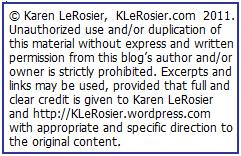21. Don’t verb nouns.
22. Don’t use no double negatives.
23. Make each pronoun agree with their antecedent.
24. When dangling, watch your participles.
25. Don’t use commas, which aren’t necessary.
26. Verbs has to agree with their subjects.
27. About those sentence fragments.
28. Try to not ever split infinitives.
29. Its important to use apostrophe’s correctly.
30. Always read what you have written to see if you’ve any words out.
31. Correct spelling is esential.
32. Proofread you writing.
33. Between you and I, case is important.
34. Verbs has to agree with their antecedents.
William Safire, 1929 – 2009
William Lewis Safire was an American author, columnist, journalist, and presidential speechwriter. He was best known as a political columnist for the New York Times and for his column On Language in the New York Times Magazine. He was also the author of the novels, Scandalmonger, Sleeper Spy, Freedom: A Novel of Abraham Lincoln and the Civil War and Full Disclosure.
Safire’s Rules from: http://pages.stern.nyu.edu/~wstarbuc/Writing/Safire.htm
Original Image of Safire from: http://commons.wikimedia.org/






